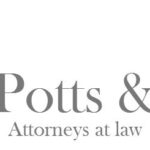Do I Pay Pennsylvania Inheritance Tax if My Relative Lives Out of State?
Pennsylvania is one of the few states with an inheritance tax. An inheritance tax is imposed on people who inherit property from certain relatives. The tax rate varies depending upon the parties involved with the inheritance. Many people worry about receiving an inheritance because they may have to pay a steep penalty to receive it. If you or a family member is concerned about the tax rate for your inheritance, you should consult with a Pennsylvania inheritance tax lawyer. The dedicated attorneys at Herr Potts & Potts understand the stress involved with receiving an inheritance that may cost you a lot of money in taxes. The legal team at Herr Potts & Potts are here to explain whether you have to pay the Pennsylvania inheritance tax if your relative lives out of state.
What is Pennsylvania’s Inheritance Tax?
Pennsylvania is one of six states that collects an inheritance tax. The other states are Iowa, Kentucky, Maryland, Nebraska, and New Jersey. An inheritance tax is a tax imposed on the inheritor of a deceased person’s assets. The tax is not imposed because of the size of the deceased person’s (decedent) estate, but because of the relationship between the inheritor and decedent.
To trigger an inheritance tax, the decedent must have lived in a state that collects an inheritance tax. Another way to trigger the inheritance tax in Pennsylvania is to own real estate or tangible personal property that is located within the state. Therefore, if your relative lived outside of the state but bestowed upon you property that was within Pennsylvania, you are subject to the inheritance tax.
However, there are some exceptions and other information that an heir should know about Pennsylvania’s inheritance tax. This is why you should consider speaking to an experienced elder law lawyer about your inheritance.
Tax Rates for Pennsylvania’s Inheritance Tax
As mentioned above, the tax rates vary depending on the heir’s relationship with the decedent. For example, a property that is jointly owned between spouses is exempt from Pennsylvania’s inheritance tax. The tax rates for Pennsylvania’s inheritance tax are:
- 0% for all transfers to a “surviving spouse” or to a “parent from a child aged 21 or younger”
- 5% for transfers to “direct descendants” and “lineal heirs”
- 12% for transfers to siblings
- 15% for transfers made to any other heirs, not including “charitable organizations, exempt institutions, and government entities exempt from tax”
An heir is responsible for inheritance tax payments “upon the death of the decedent.” Additionally, an heir only has nine months after the decedent’s death to pay the inheritance tax before they become delinquent. However, there is something of a reward for heirs who pay the inheritance early. If you pay the inheritance tax within three months of the decedent’s death, Pennsylvania may allow you to discount five percent of taxes, if you owe taxes at all.
Also, there is an exemption for decedents who pass away after June 30, 2012. This exemption allows for “certain farm lands” and “other agricultural property” to be exempt from Pennsylvania’s inheritance tax. However, this exemption is only available if the decedent gives the property to an heir that is eligible for the exception.
Pennsylvania inheritance tax does not provide an exemption for certain types of real estate. For example, the following types of real estate used to do the following activities are not exempt:
- Recreational activities like “hunting, fishing, camping, skiing, show competition, or racing”
- “Raising, breeding, or training of game animals or game birds, fish, cats, dogs, or pets or animals intended for use in sporting or recreational activities”
- Fur farming
- “Stockyard and slaughterhouse operations”
- “Manufacturing or processing operations of any kind”
If you have a residential home on land used for “agricultural business” the home will be presumed to be used for those activities and will not be exempt. Additionally, any commercial buildings not used in the “business of agriculture” are not exempt from the inheritance tax.
This is not an exhaustive guide to Pennsylvania’s inheritance tax. If you need to know more about how the inheritance tax is imposed or calculated, you should consult with an estate planning attorney at Herr Potts & Potts.
Delaware County Estate Planning Lawyers Providing Tax Help
If you or a family member needs help dealing with Pennsylvania’s inheritance tax, you should speak with experienced Delaware County estate planning attorneys. The attorneys at Herr Potts & Potts have over 80 years of elder law experience that they will utilize to handle your case. Pennsylvania’s inheritance tax can be a complex set of laws, but we are to guide you through receiving your inheritance. To schedule your free consultation, call us at (610) 254-0114 or reach us online.



